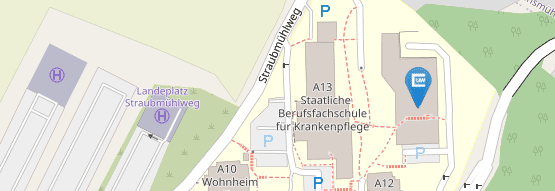Michael Stach

Kurzer Lebenslauf
| seit 2023 | Wissenschaftlicher Mitarbeiter am Institut für Klinische Epidemiologie und Biometrie, Universität Würzburg |
| 2017-2022 | Wissenschaftlicher Mitarbeiter am Institut für Datenbanken und Informationssysteme, Universität Ulm |
| 2014-2016 | Studium M.Sc. Medieninformatik, Schwerpunkt Verteilte Systeme & Informationssysteme, Universität Ulm |
| 2010-2014 | Studium B.Sc. Medieninformatik, Universität Ulm |
Wissenschaftliche Schwerpunkte
- Digital Health
- Daily Life Research
- Mobile Computing
- Information Systems
Projekte
- Corona Check
- Corona Health
- Intersession-Online
- Mobile Health App Database (MHAD)
- NUM-COMPASS
Ausgewählte Publikationen der letzten Jahre
Eine volllständige Publikationsliste finden Sie auf meiner Website mstach.de oder meinem ORCID-Profil.
2025[ to top ]
-
. Comparative analysis of Mobile Crowdsensing and Ecological Momentary Assessment systems. Ecological Informatics [Internet]. 2025;:103315. Available from: https://www.sciencedirect.com/science/article/pii/S1574954125003243
- [ DOI ]
2024[ to top ]
-
. Call to Action: Investigating Interaction Delay in Smartphone Notifications. Sensors [Internet]. 2024;24(8):2612. Available from: https://www.mdpi.com/1424-8220/24/8/2612
-
. Determinants and reference values of the 6-min walk distance in the general population-results of the population-based STAAB cohort study. Clin Res Cardiol. 2024;.
- [ DOI ]
2023[ to top ]
-
. Follow-Up Evaluation to Explore Disparities Between Android and iOS Users Utilizing the TrackYourTinnitus Mobile Health Platform. In: 2023 International Conference on Computational Science and Computational Intelligence (CSCI). 2023. pp. 1493-7.
- [ DOI ]
-
. Self-Assessment of Having COVID-19 With the Corona Check Mhealth App. IEEE J Biomed Health Inform. 2023;Pp.
- [ DOI ]
-
. Predicting the presence of tinnitus using ecological momentary assessments. Scientific Reports [Internet]. 2023;13(1):8989. Available from: https://doi.org/10.1038/s41598-023-36172-7
- [ DOI ]
-
. Exploring Concepts for Pipeline-Driven Mobile Health Data Dashboards: Insights from Personal Projects and GitHub Contributions. In: 2023 International Conference on Computational Science and Computational Intelligence (CSCI). 2023. pp. 1344-50.
- [ DOI ]
-
. Tales From the Past: Adapting App Repositories to App Store Dynamics. In: 2023 Congress in Computer Science, Computer Engineering, & Applied Computing (CSCE) [Internet]. 2023. pp. 1342-7. Available from: https://ieeexplore.ieee.org/document/10487517
- [ DOI ]
2022[ to top ]
-
. LAMP: a monitoring framework for mHealth application research. Procedia Computer Science [Internet]. 2022;198:203-10. Available from: https://www.sciencedirect.com/science/article/pii/S1877050921024686
- [ DOI ]
-
. Free Technical Solutions for Ecological Momentary Assessments - Searching GitHub plus Google. In: 2022 International Conference on Computational Science and Computational Intelligence (CSCI). 2022. pp. 1778-81.
- [ DOI ]
2021[ to top ]
-
. Corona Health—A Study- and Sensor-Based Mobile App Platform Exploring Aspects of the COVID-19 Pandemic. International Journal of Environmental Research and Public Health [Internet]. 2021;18(14):7395. Available from: https://www.mdpi.com/1660-4601/18/14/7395
- [ DOI ]
2020[ to top ]
-
. Comprehensive insights into the TrackYourTinnitus database. Procedia Computer Science [Internet]. 2020;175:28-35. Available from: https://www.sciencedirect.com/science/article/pii/S1877050920316872
- [ DOI ]
-
. Smartphone and Mobile Health Apps for Tinnitus: Systematic Identification, Analysis, and Assessment. JMIR Mhealth Uhealth [Internet]. 2020;8(8):e21767. Available from: http://mhealth.jmir.org/2020/8/e21767/https://doi.org/10.2196/21767http://www.ncbi.nlm.nih.gov/pubmed/32808939
- [ DOI ]
-
. Mobile Health App Database - A Repository for Quality Ratings of mHealth Apps. In: 2020 IEEE 33rd International Symposium on Computer-Based Medical Systems (CBMS). 2020. pp. 427-32.
- [ DOI ]
-
. Technical Challenges of a Mobile Application Supporting Intersession Processes in Psychotherapy. Procedia Computer Science [Internet]. 2020;175:261-8. Available from: https://www.sciencedirect.com/science/article/pii/S187705092031718X
- [ DOI ]
-
. Combining Mobile Crowdsensing and Ecological Momentary Assessments in the Healthcare Domain. Frontiers in Neuroscience [Internet]. 2020;14. Available from: https://www.frontiersin.org/articles/10.3389/fnins.2020.00164
- [ DOI ]






